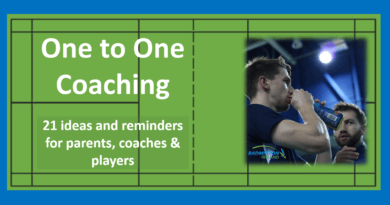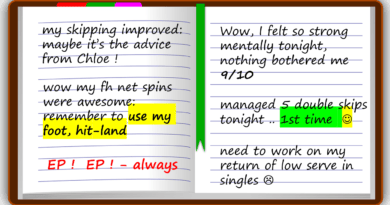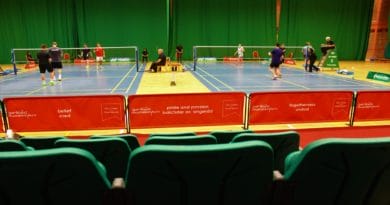How to Improve your Collaboration
Do you ever want to share a coaching problem?
Or do you think you have the skills and experience to help others?
I want to try and help with some ideas, suggestions to kick start your Collaboration
After receiving a question from a coach who asked:
“what’s stopping people from collaborating and how could they improve?”
I decided to take up the challenge and write this mini-series.
This is the last part of the series looking at Collaboration. If you want to read my thoughts on why I try to collaborate and the difficulties I face, click on these images before reading the rest.
What do I know ! ? !
It’s been a tough time for me trying to write this. I’ve type paragraphs, then immediately deleted them! I have much to learn and certainly don’t have all the answers. That’s why I Collaborate and ask Questions.
I hope to offer you an insight into the things I’ve done that work. Also, things I’ve seen other people do and wish I had the courage to do the same. All these tips are designed to give you ideas about how to improve your collaboration.
If you think someone would benefit from seeing this post, please share it
I’d appreciate your help
– – – – – – – – – – – – – – – – – –
How to Improve your Collaboration
1. Be Open: otherwise, why do it
2. Be inquisitive: ask great questions
3. Share without Expectation
4. Use a Decision framework: critical assessment is vital
5. Test on the court and in a game: always!
6. Allow for disagreement & challenges: be respectful but test
7. Change Roles be a Student / become a Teacher
8. Networks are vital: create your Super Team
– – – – – – – – – – – – – – – –
1. Be Open: otherwise, why do it
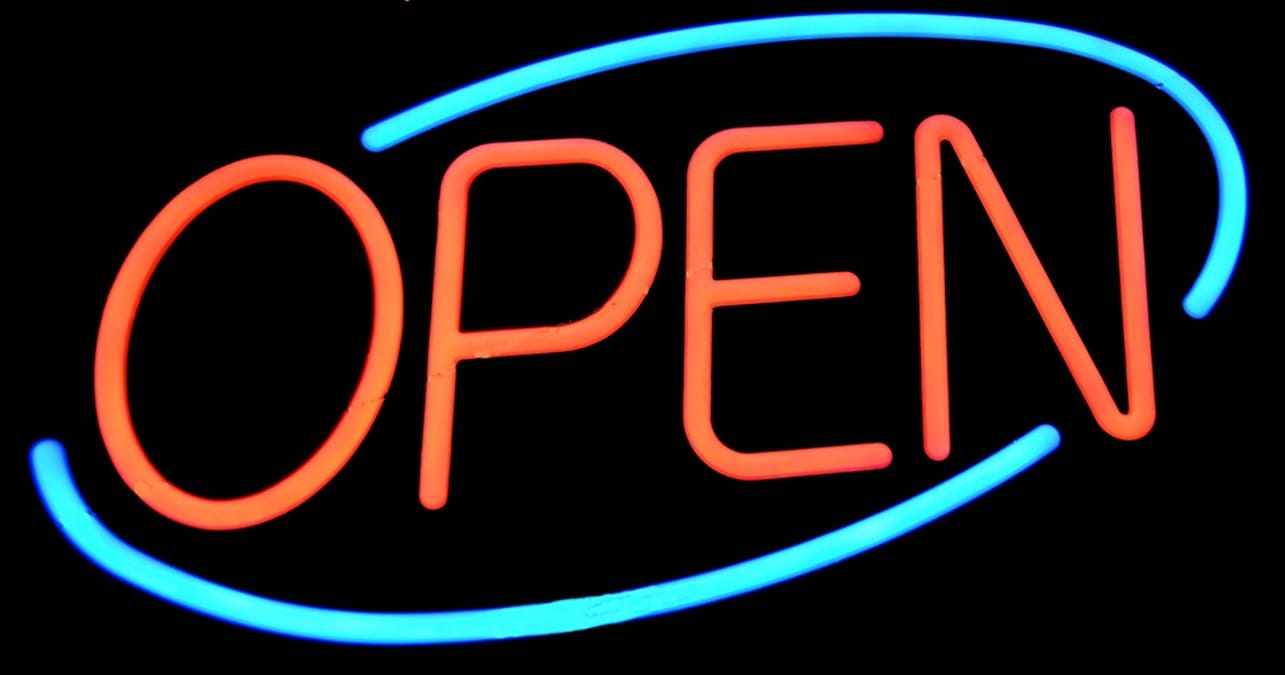 It’s obvious but can be difficult to do. The search for information, answers or alternative viewpoints may test you. You don’t have to agree with someone’s viewpoint but you do need to be aware of it.
It’s obvious but can be difficult to do. The search for information, answers or alternative viewpoints may test you. You don’t have to agree with someone’s viewpoint but you do need to be aware of it.
Try not to assume that the information you currently believe will solve all the coaching and playing situations that face you. Being aware of other people’s ideas may give you the solution you need or prompt new ideas for you to consider.
Have an open mind but also have a critical mind. To be a good critical thinker you must maintain an open mind. Being open-minded means that you must not just hear, but listen, then consider, and finally test.
Do your best to understand what others say, open your mind to their thoughts
However, this openness should not be confused with agreement or ‘blind acceptance’
– – – – – – – – – – – – – – – –
2. Be inquisitive: ask great questions
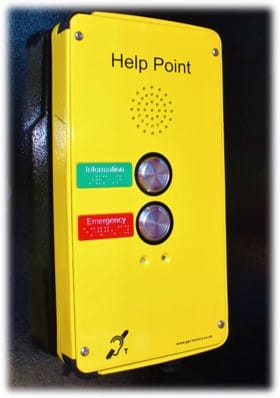 Your conversations should be full of questions if you are to collaborate effectively. Some of the toughest questions I’ve been asked have come from teenage players. They are always highly motivated players, they often ask out of frustration or because no one else will answer their questions.
Your conversations should be full of questions if you are to collaborate effectively. Some of the toughest questions I’ve been asked have come from teenage players. They are always highly motivated players, they often ask out of frustration or because no one else will answer their questions.
I’ve been asked direct questions, short questions, complex questions and been given outright demands.
The coaches I work with (my friends), they ask the best questions. The ones that are open, honest and demanding. They don’t mind showing that they want to know more. It’s these conversations that inspire me and most often finish with me having a better understanding.
My favourite conversations often include questions such as :
“Explain that in more detail …….” (said in a non-confrontational way)
“What would you do if …..” (state the specific situation)
“Does that work in this situation …..” (describe the situation that you see in your mind)
“But what happens when the player starts to do ..…” (try to remember the specific situation on the court in the game)
“What would you do to encourage ……” (ask after offering your initial thoughts)
“How else can I encourage or coach ……” (often said as a frustrated plea in search of help)
“Why are players great in practice but in matches they …..” (describe what you expected to see in the competition)
“Why aren’t I improving in a competition” (often said to me by players who are good in practice)
When was the last time you had a selfish moment & asked a question that allowed you to improve your knowledge?
Start creating great, specific, challenging questions
– – – – – – – – – – – – – – – –
3. Share without Expectation
This can be tough but it’s essential if you want to collaborate.
If someone asks for your thoughts or advice, give it without conditions. Don’t seek payment or state conditions. Think about the reply you give and ensure its as valuable as you can make it.
The more you become accustomed to giving freely without expectation the better you will feel. I promise you that in the long run you will feel great.
– – – – – – – – – – – – – – – –
4. Use a Decision framework: critical assessment is vital
If you are given advice, write it down somewhere, not rely on your memory
Use these questions to test the information you’ve been given or are about to share
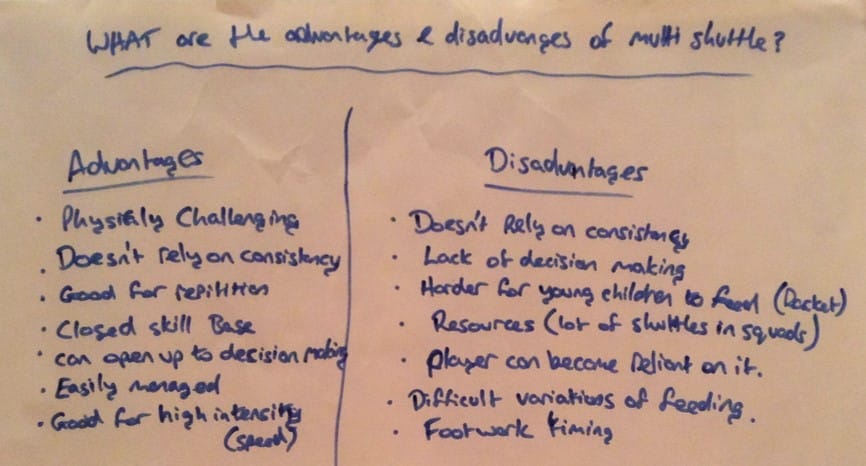
1 If it concerns Technique, does it fit with the Playing Basics ? (part 1 of the 3 posts)
2 Do world-class players exhibit it?
3 Is it applicable to your player within the next 12 months?
4 Is it effective or just keeping players busy?
5 Who else can I ask to confirm this?
6 Does it create a ‘Practice Skill’ or a ‘Rally Winning / Opponent Hurting Skill’ ?
7 If it’s very new to you, is it a fad or real progress?
Don’t blindly follow any advice but experiment and then reflect if it was useful,
if not ask why, if yes, then also ask why
– – – – – – – – – – – – – – – –
5. Test on the court and in a game: always!
Any advice or conversations you have must always be tested on the court. I was taught this by my Mentor.
He would often stop the conversation walk onto the courts and say “ok, now show me what you are talking about!”
Great collaborations will involve both parties exploring what happens on the court in game-like scenarios that require game-like responses. Be prepared to have conversations not in the café, bar or online bar but on the court.
I was challenged by my mentor coach
At the time I felt very uncomfortable when I discovered that there were only 2 concepts that Roger Mills would accept.
Does the information work on court in a competition
or does it lead to an improvement in a skill that ultimately would result in an improvement in competition?
– – – – – – – – – – – – – – – –
6. Allow for disagreement & challenges: be respectful but still challenge
In any collaboration, there will be times when you disagree with someone, even someone you trust and respect. It’s a normal process and one that should be accepted.
If I disagree with someone then I’ll try to understand their position, and their arguments. Then I spend time thinking about what would have to happen if I was to accept their advice. What would I need to change?
This process may take a day or two, sometimes it takes a few weeks. At times my stubbornness and closed mindset have caused me to take a few years to fully understand the value of the advice from Roger or another trusted friends.
Unfortunately, in my early years, I couldn’t listen with an open mind
Nowadays I do listen, try to understand what others say, but still challenge as toughly as I always have
– – – – – – – – – – – – – – – –
 7. Change Roles be a Student / become a Teacher
7. Change Roles be a Student / become a Teacher
I’ve found that some of the best conversations come from when I’ve changed roles.
If you are asked a question it’s because someone wants your opinion or advice. You are placed in the role of the giver (the teacher). It’s because someone wants to hear your thoughts.
However, I’ve learned that often I can also develop and enjoy the conversation if I look to understand what prompted the questions. To learn more about the background and motivation of the person who has asked.
If you are asked for help, of course, give as much as you can, but do more. See what you can learn from the request.
This can be a fascinating process if you consider –
.. what prompted the question?
.. have you heard it before (I wonder why it keeps getting asked? )
.. does this person have a solution that is new to you?
.. do you now need to ask them questions?
Make your collaboration a 2-way process: be both a Student and a Teacher.
Be motivated to help and learn more about the background to the request.
Share knowledge, encourage feedback, love the interactions ?
– – – – – – – – – – – – – – – –
8. Networks are vital: create your Super Team
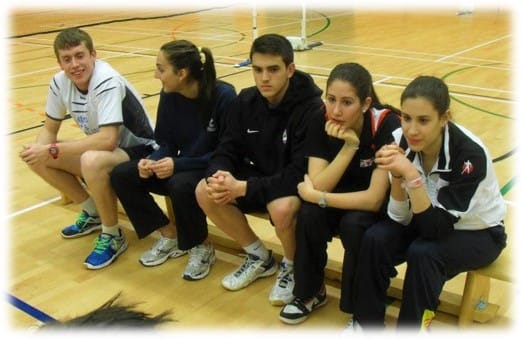 Do you have a group of say 4 or 5 people who you can count on to give you an opinion?
Do you have a group of say 4 or 5 people who you can count on to give you an opinion?
Building a great supportive Badminton network is a sure way to improve. It’s taken me many years to build mine. It took me a few years to realise that learning alone just isn’t fast enough. You can attend all the Coach Education courses out there and they still won’t beat having a great network.
The difference is that on Coach Education courses or workshops it’s tough to ask those open (potentially embarrassing) questions. Plus, you may be being assessed and to question the Tutor could be dangerous (not always) if you don’t how they will react.
I am very grateful to know the people in my collaboration network.
Some of them probably don’t know that I count them as part of it. Without these people, I could not enjoy this great sport or help others.
It’s the interactions from your Network that will give you increased pleasure. Learning new things is great but working with someone and sharing the learnings is much, much better.
Build your network by starting with a simple question:
“Please can you help me” or “What do you think about …..”

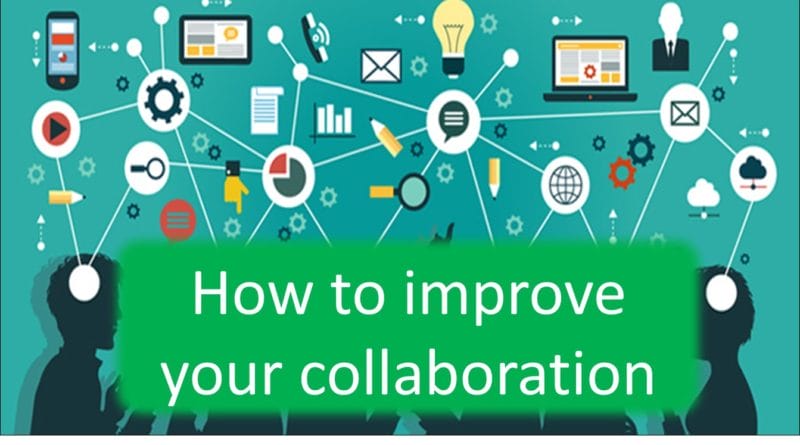


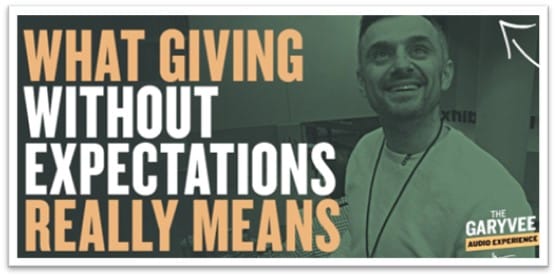
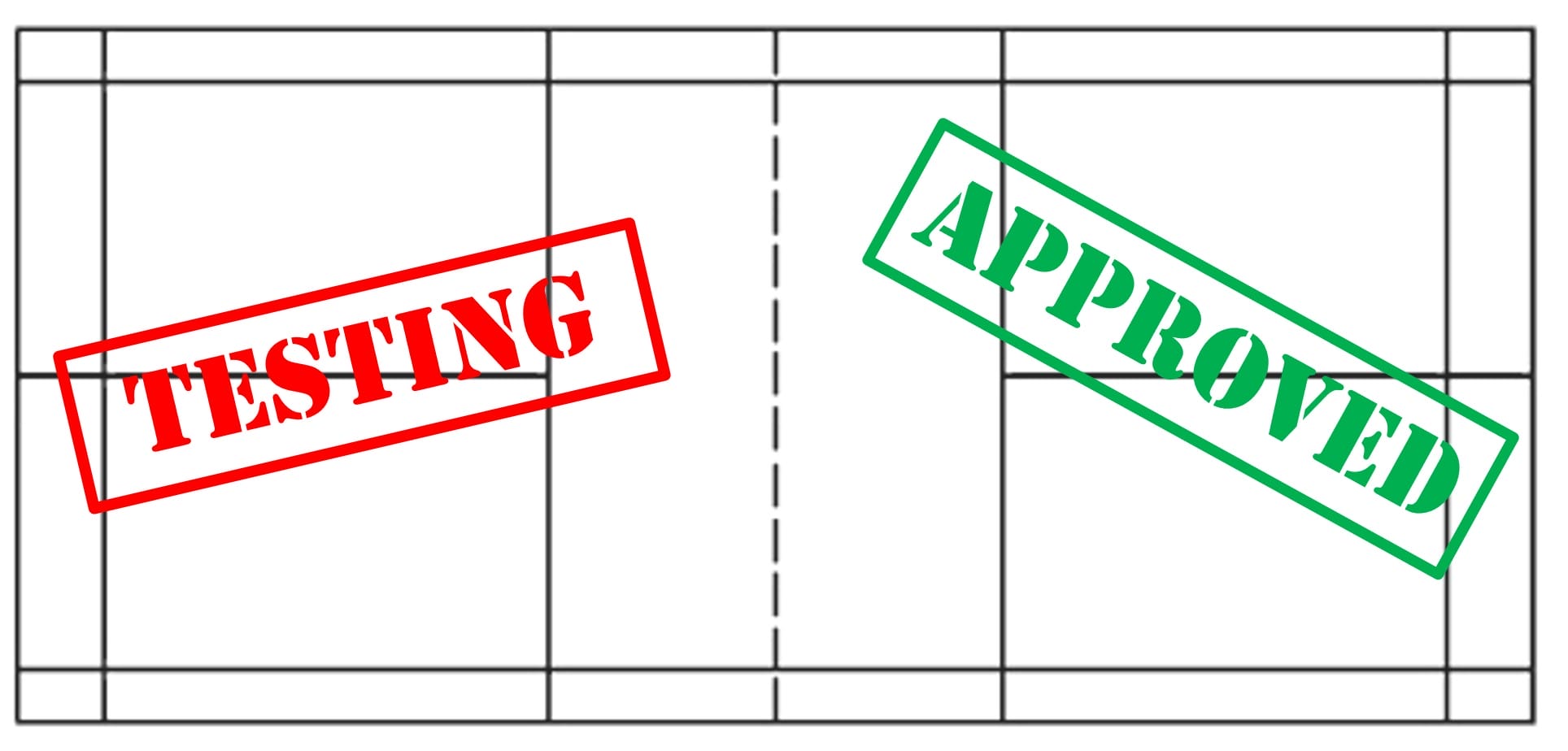
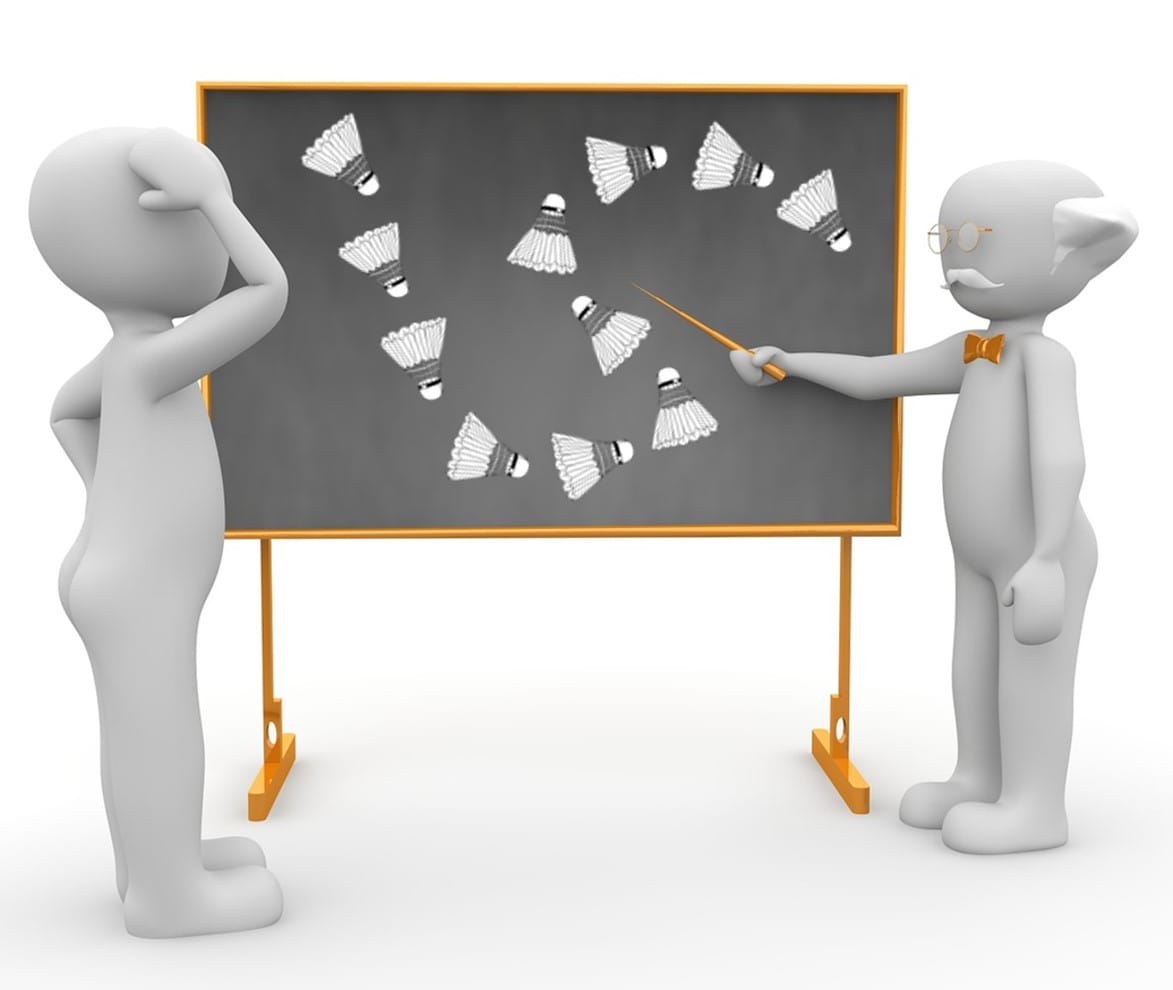 7. Change Roles be a Student / become a Teacher
7. Change Roles be a Student / become a Teacher
